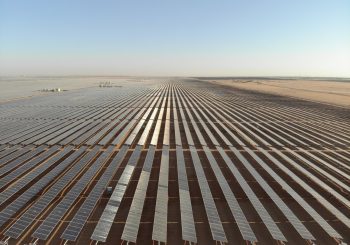According to data from the Joint Organizations Data Initiative (JODI), Egypt’s natural gas output in May fell to its weakest level since February 2018, a stark contrast from its previous position as a net exporter of the fuel.
The drop in production has been partially attributed to operational challenges at Egypt’s largest gas field, Zohr in Port Said, where output has reportedly declined by one-third since 2019 due to issues like water infiltration.
This operational setback, combined with financial liabilities owed to foreign oil companies, has hindered exploration and development efforts, further amplifying the production challenges.
The country’s energy issues are compounded by a surge in power demand, driven by several back-to-back heatwaves that have increased the demand for electricity to power air-conditioning units across the nation.
Prime Minister Mostafa Madbouly recently acknowledged that Egypt’s daily power consumption has surged by 12 percent compared to the previous year, creating a deficit of 4 gigawatts.
In response to these challenges, the Egyptian government has taken several measures. It plans to accelerate renewable energy projects, aiming to increase the share of electricity generated from renewable sources to 58 percent by 2040 from the current 20 percent.
The government has also signed Memoranda of Understanding (MoUs) with international developers to establish green hydrogen and renewable technology projects worth USD 40 billion (EGP 1 trillion), primarily in the Suez Canal Economic Zone (SCZONE).
Furthermore, the government has sought to address the immediate power shortage by importing liquefied natural gas (LNG). Last week, Egypt received five out of 21 LNG shipments, with Madbouly pledging to pause all state-controlled blackouts until at least mid-September.
However, the challenges extend beyond just power generation. Egypt’s oil production has also declined significantly, dropping from its highest point in March 2021 at 6,133 million cubic meters to 4,288 million – cubic meters in May 2024 – a 30 percent decrease.
This decline in production levels indicates that Egypt may have to withdraw from its position as a natural gas exporter, relying more on LNG imports to meet its domestic needs.
The energy crisis has had far-reaching consequences, with major fertilizer producers in Egypt forced to halt operations after natural gas supplies to factories were suspended to fuel power plants and solve the power outage crisis.







Comments (0)